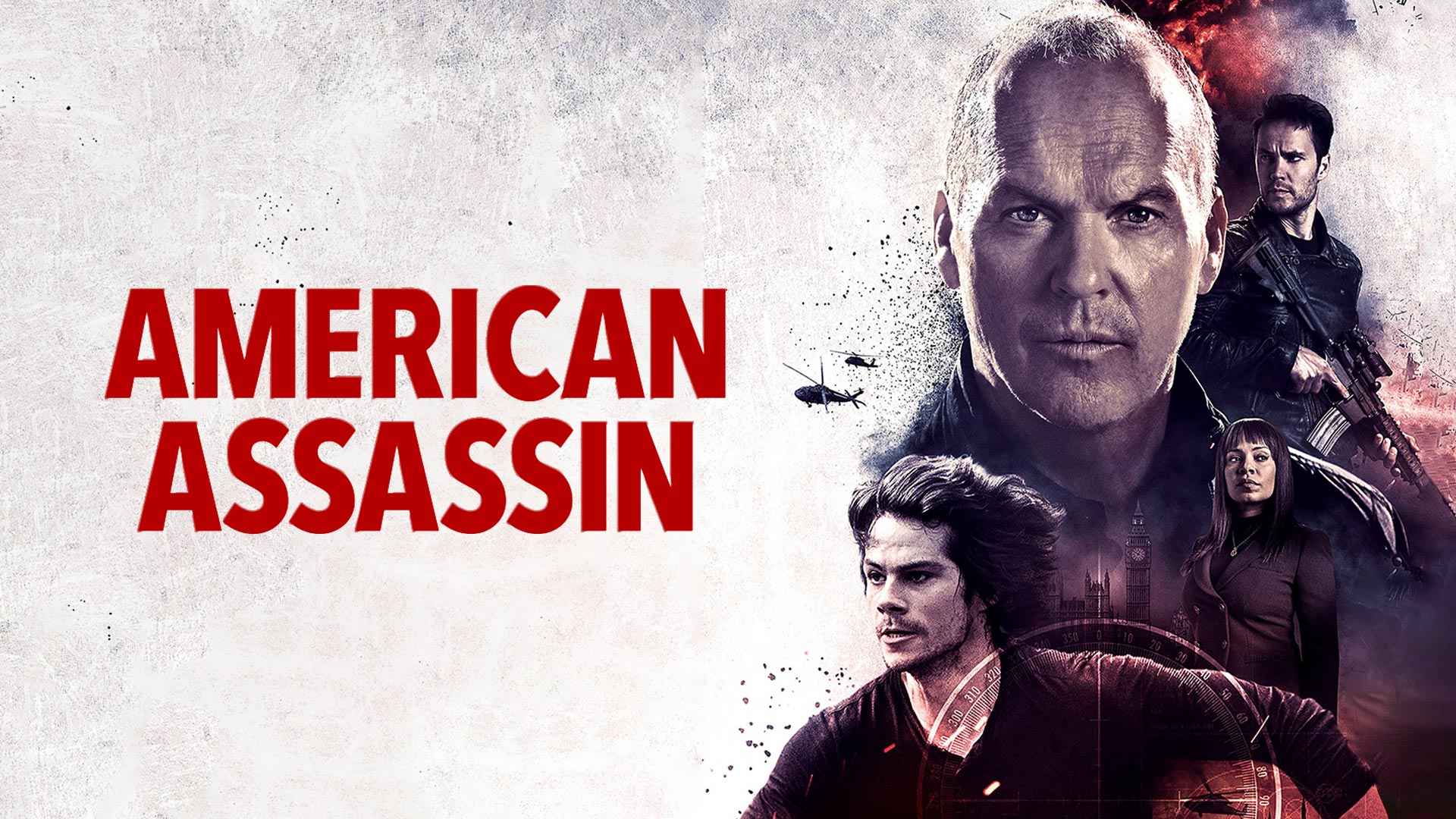American Assassin (2017)

“American Assassin,” directed by Michael Cuesta and released in 2017, is a high-octane action thriller that delves into the world of espionage and terrorism. Based on the novel by Vince Flynn, the film features a strong cast led by Dylan O’Brien, Michael Keaton, Sanaa Lathan, Shiva Negar, and Taylor Kitsch. With a blend of intense action sequences and character-driven storytelling, “American Assassin” explores themes of revenge, sacrifice, and the moral complexities of fighting against terrorism.
The film follows the story of Mitch Rapp (Dylan O’Brien), a young man whose life is forever altered by a brutal act of violence when his fiancée is killed in a terrorist attack. Consumed by grief and rage, Mitch becomes determined to seek justice. He trains extensively, honing his skills in combat and survival, with the aim of avenging his fiancée’s death. This personal vendetta leads him into the shadowy world of counterterrorism, where he catches the attention of the CIA.
Mitch’s journey is fraught with challenges, both physical and emotional. O’Brien delivers a compelling performance, capturing the character’s transformation from a heartbroken civilian to a lethal operative. His portrayal of Mitch is raw and relatable, allowing the audience to connect with his motivations and internal struggles. The film explores how personal loss can drive individuals to extremes, raising questions about the cost of vengeance and the toll it takes on one’s humanity.
Michael Keaton plays Stan Hurley, a seasoned CIA operative tasked with training Mitch. Keaton brings depth and gravitas to the role, embodying a mentor figure who is both tough and pragmatic. The dynamic between Mitch and Stan is central to the film, as their relationship evolves from one of skepticism to mutual respect. Keaton’s performance adds layers to the narrative, highlighting the complexities of mentorship in a dangerous and morally ambiguous world.
Sanaa Lathan portrays Irene Kennedy, a CIA deputy director who plays a crucial role in the operation against a terrorist group. Lathan delivers a strong performance, showcasing her character’s intelligence and determination as she navigates the intricacies of international espionage. Her presence adds a nuanced perspective to the film, as she balances the demands of her job with the ethical dilemmas posed by the war on terror.
The film’s antagonist, played by Taylor Kitsch, is a former operative named Ghost who has gone rogue. Kitsch’s portrayal of Ghost is menacing and charismatic, providing a formidable challenge for Mitch and Stan. The conflict between Mitch and Ghost serves as a driving force in the narrative, culminating in a series of thrilling confrontations that test both characters’ limits. Kitsch effectively captures the complexity of a character who operates outside the bounds of loyalty and morality, adding depth to the film’s exploration of good versus evil.

“American Assassin” is marked by its gripping action sequences and well-choreographed fight scenes. The cinematography, led by Javier Aguirresarobe, captures the intensity of the action while also providing a visceral experience for the audience. From high-stakes gunfights to hand-to-hand combat, the film keeps viewers on the edge of their seats. The pacing is relentless, ensuring that there is never a dull moment as the plot unfolds.
The film’s exploration of terrorism and its implications in a post-9/11 world is particularly relevant. It raises important questions about the lengths to which governments will go to combat threats and the moral compromises that come with such actions. The characters grapple with their roles in this complex landscape, highlighting the gray areas of right and wrong that define modern warfare.

Despite its intense action and thrilling plot, “American Assassin” also takes moments to delve into the emotional core of its characters. Mitch’s journey is not just one of revenge; it is also a quest for purpose and understanding in a world that can often feel chaotic and unjust. The film explores how trauma can shape individuals, leading them to seek closure in ways that may not always align with conventional morality.

The score, composed by Steven Price, further amplifies the film’s tension and emotional weight. The music enhances key moments, adding to the overall atmosphere of suspense and urgency. Price’s score complements the film’s visual style, creating an immersive experience that draws the audience deeper into the story.
In conclusion, “American Assassin” is a thrilling and thought-provoking action film that balances intense sequences with deeper character exploration. Directed by Michael Cuesta and featuring strong performances from Dylan O’Brien, Michael Keaton, and the supporting cast, the film captivates viewers with its exploration of revenge, sacrifice, and the moral dilemmas inherent in the fight against terrorism. The narrative resonates with contemporary issues while delivering a gripping cinematic experience. For fans of action thrillers that challenge the viewer’s perceptions of morality and justice, “American Assassin” is a must-watch that leaves a lasting impact. It is a film that not only entertains but also provokes reflection on the complexities of human motivations in a world filled with violence and uncertainty.











